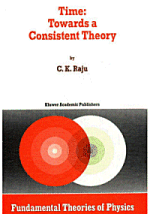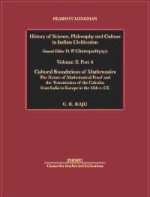
Physics | Mathematics | Computers | Ethics | History & Philosophy of Science | Science and Religion | Education

Physics | Mathematics | Computers | Ethics | History & Philosophy of Science | Science and Religion | Education
Since the days of Newton, physics has been done using ordinary and partial differential equations. This involved confusion about the nature of time: Newton made time "mathematical" to try and fit the calculus to European beliefs about the perfection of mathematics.
Making time physical led to relativity. After relativity, physics must be done using functional differential equations (FDEs). The resulting paradigm shift in physics could explain key features of quantum mechanics. Einstein made a mathematical mistake in this matter....more.
In an ironical tribute to Einstein, Sir Michael Atiyah, in his Einstein lecture of 2005, also suggested FDEs as a potential new paradigm for physics, and conjectured that this might explain quantum mechanics. He did not mention me (nor even Poincare or Einstein in this connection), and put out the idea as his original suggestion, later called "Atiyah's hypothesis". My work was acknowledged only subsequently. But Atiyah too made a mistake...more.
Present-day mathematics rests on formal proof, which varies with logic, but logic varies with time beliefs and culture. So mathematical theorems are no more than cultural truths. That seems the end of formal mathematics...more.
The new mathematics would value calculation above proof.
Gives a new way to tackle infinities in computing, calculus, quantum field theory, and shock waves.
About India's first parallel supercomputer Param that I helped to build.....more
(This was not really new, similar things had been done before elsewhere, but people then thought of India as technologically backward, and dismissed the effort as "mad".)
Computers become obsolete every 3 years, but this may soon stop. Worried that this may result in an economic slowdown, many countries (not India) are betting billions on quantum computing as the solution. But will quantum computers work? That requires a proper understanding of quantum mechanics. Does the many-worlds interpretation of quantum mechanics mean quantum computing is parallel computing? Or is something missing so that quantum computers should be designed differently?....more.
Download free educational software (for all), and lecture notes (students only).
Can ethics be based on science? The harmony principle provides a new basis of ethics not based on outmoded cultural beliefs. It gives meaning and purpose to life without having to believe in God... more.
Also: Has the AMS made a mockery of its ethics in the Atiyah case? ...more.
The calculus developed in India, and was transmitted to Europe. Newton and Leibniz did not "independently rediscover" it. Why not? And what difference does it make?... more.
The Western history of science was designed by priests during the Crusades and Inquisition. Colonialism made this ultra-chauvinisitic story the "standard" and any realistic corrections are dismissed as chauvinistic! The story created awe of the West, and fooled people into aping the West as the right way to "catch up". This worked like a leash to enslave people mentally. If you are one of those slaves, break out now....more
Mathematics is supposedly based on Euclid's Elements. But did Euclid exist? Was the Elements a religious book?... more.
Is the certainty of mathematics only a religious belief? Would mathematics change if we changed the underlying religious belief? What would Buddhist mathematics be like? ...more
Is Stephen Hawking's theory of "singularities" just a sophisticated articulation of Christian ideas of creation?...more
Is the authority of science being misused to control people's behaviour by persuading them about the validity of a certain set of values. ...more
“Mr Raju has shown that he has great initiative and has worked extremely hard.”
“...shows great imagination and promise...“
(paper on the Dirac delta function, in J. Phy. A)
“This is a paper of very high quality addressed to problems that are certain to be of increasing importance in the future. The presentation is exceptionally clear...“
“Dr Raju is full of brilliant ideas... It is my conviction that Dr Raju has decidedly within him certain elements of genius...“
“Raju is a very good researcher. He has imagination, creativity and confidence in himself.“
“Indian philosophy certainly needs scholars like you.“
(paper on Time Travel, Foundations of Physics)
“It was a pleasure to read this paper. I enjoyed its grace and delightful wit... the appeal to equations of finite difference (a la Poincare) seems a clever and promising approach.“
Some that I have been in and liked.



See full list of Institutions

(Uses ip2location)


An analysis of the notion of time leads to a non-mechanistic physics done in a new way using functional differential equations... more
"Raju writes with ease and deft wit...The bare concept that I have just summarised is exploited with subtlety and elegance by Raju. ...about the niftiest explanation of our intuitive sense of time I have yet seen....an important book..." -J. F. Woodward (Foundations of Physics )
"Altogether a delightful book". -A. N. Mitra
"authoritative and written with impeccable clarity...an excellent book."- D. J. Klir (International Journal of General Systems)

How religion has influenced physics through time beliefs and how this unholy alliance is used to control your behaviour today... more
"...magnificent, a true magnum opus...a truly revolutionary book (not merely an excellent book...)" -Arun Ghosh
"masterly command of primary sources and a delightful sense of wit and humour...Brilliant, thought provoking, and singular..."- Kapila Vatsyayana (Sandhan)
"This is a book with a difference, and the difference will excite some readers, as it did me, and infuriate many others. -Don Miller (Time and Society, London)
Pictures of Book Release by Dr Kapila Vatsyayana and Prof. Yashpal

Why mathematics is not certain, and a new history of how the calculus developed in India and was transmitted to Europe... more
"proof in the western mathematical tradition is dealt with remarkable originality by C. K. Raju...among the best treatments of the history and philosophy of mathematics." -Ubiratan D'Ambrosio
"an essential reference book in libraries the world over" - Review in The Hindu by K. Srinivasa Rao.
"The material presented in this volume by Raju would require a re-examination of much Western historiography of mathematics and science."
Review in Sandhan by Susantha Goonatilake.
"It has been common understanding that mathematical proof based on deduction is universal and is the ultimate proof and also that mathematical truths are eternal universal truths. C K Raju argues that this is a narrow European view of mathematics and the Indian view was very different and empirical."
Ghadar Jari Hai.
"an excellent monograph ... though small in length, [it] is much larger in significance. ...It is highly learned in its contents..."
Asghar Ali Engineer in Islam and Modern Age
In Hindi
क्या विज्ञान पश्चिम में शुरू हुआ?This website uses the three column "no-hack no-script" style sheet by M. J. Taylor.